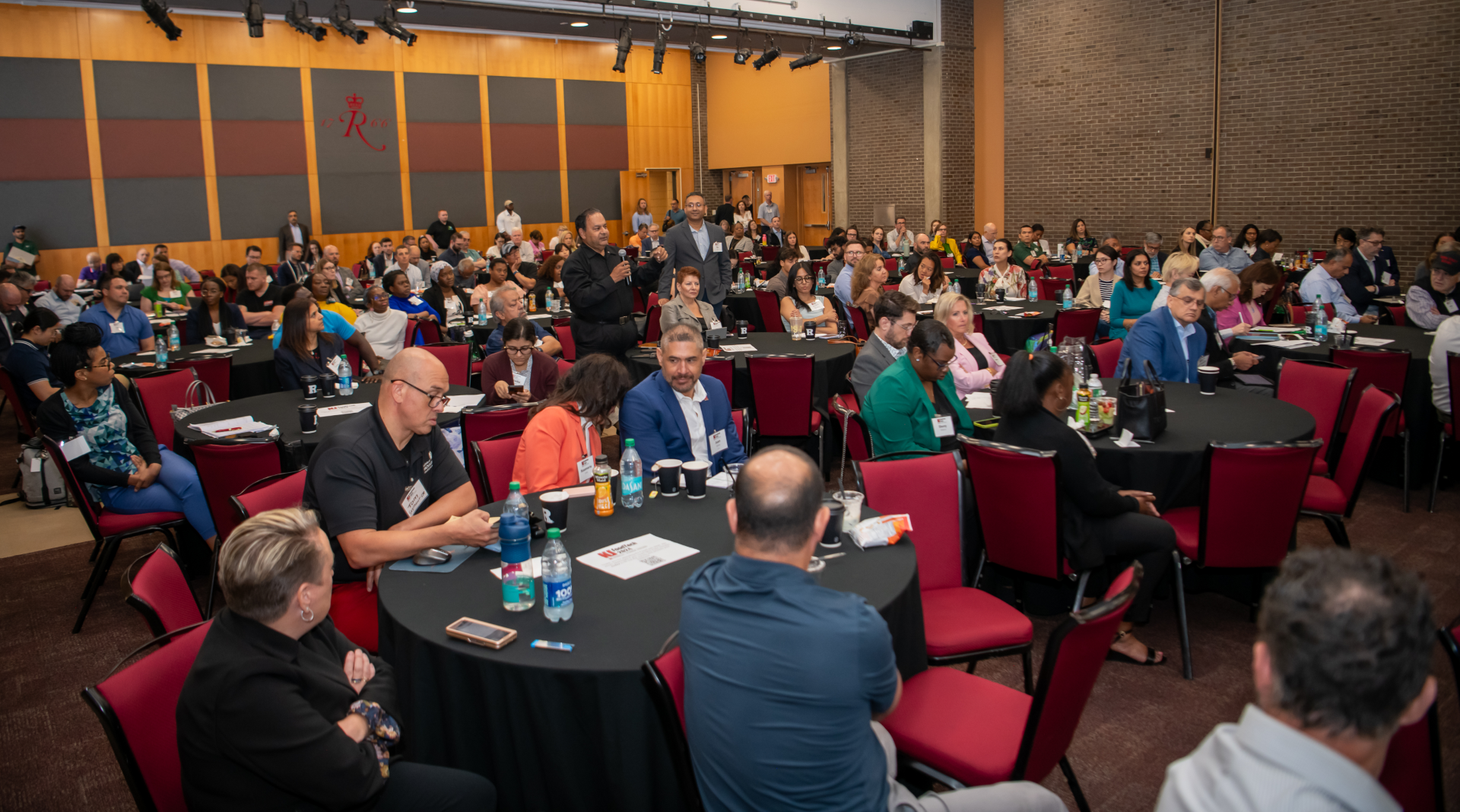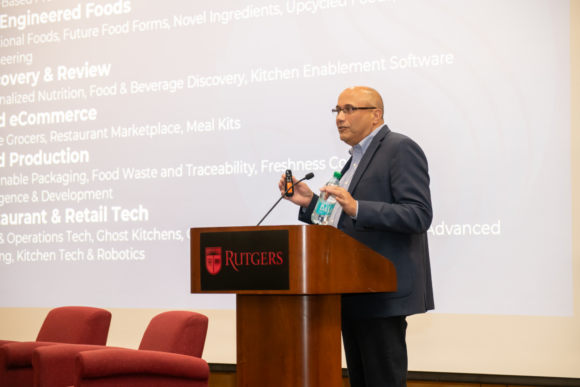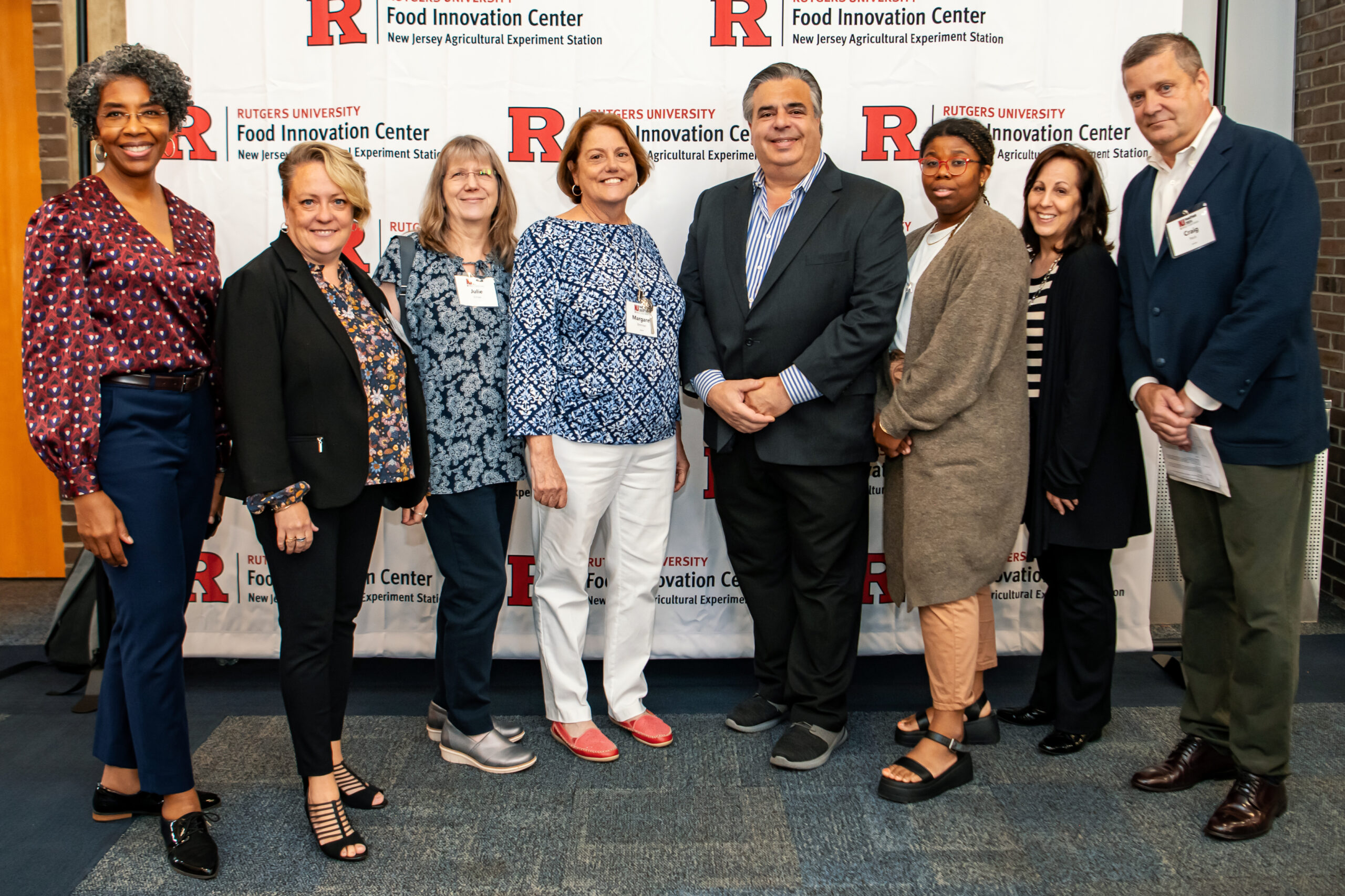
A full house at 2024 New Jersey FoodTech Conference at Rutgers-New Brunswick. Photo credit: Office of Public Outreach and Communication/Chris Guttierez.
The 2024 New Jersey FoodTech Conference was held on June 26 at the Rutgers College Avenue Student Center in New Brunswick and brought together close to 250 attendees representing a wide range of food industry stakeholders.
The conference, which has grown significantly since it was inaugurated last year, helps to promote the growth of New Jersey’s food technology sector by building awareness of its strength in food innovation. The event is a partnership among Rutgers University’s Food Innovation Center (FIC), the New Jersey Economic Development Authority and Middlesex County.
An impressive agenda focused on the trends and food technology relevant to the industry and included several panel discussions on topics such as AI, Sustainability, Alternative Proteins and Food as Medicine, among others.
In welcome remarks, Sho Islam, Division Head of Life Sciences & Food Innovation at Middlesex County’s Office of Business Engagement, emphasized that the conference aimed to highlight business retention capacity and opportunities in the state, in addition to helping to grow NJ’s food technology sector. Islam is responsible for providing business expansion and advisory support to companies located or interested in locating to Middlesex County. New Jersey’s world class facilities – 22 million square feet of lab space that is expected to grow 27% by 2026, and highly skilled workforce – firmly establish the state as a hub for the life sciences.

2024 NJ FoodTech Conference Keynote Speaker Lou Cooperhouse, founder, president & CEO of BlueNalu. Photo credit: Office of Public Outreach and Communication/Chris Guttierez.
Opening remarks were presented by Sandy Castor, Head of the Department of Economic Development for Middlesex County, Kathleen Coviello, Chief Economic Transformation Officer, NJEDA, and Margaret Brennan-Tonetta, Director of Resource and Economic Development and Senior Associate Director of Rutgers New Jersey Agricultural Experiment Station.
The event featured top caliber speakers who are leading experts in their respective fields, including Lou Cooperhouse, founder, president & CEO of BlueNalu and a global authority in food innovation, business and product differentiation, and technology commercialization. Cooperhouse presented the keynote, “Food for Thought: Food Industry Trends and the Power of Partnerships,” which drew upon his extensive entrepreneurial expertise leading cross-functional teams in a wide array of settings, including new business startups, multinational corporations, foodservice and retail operations, non-profits and trade associations, and university food incubation programs.
Following a full day that included networking opportunity for those in the food industry, closing remarks were delivered by Nolan Lewin, Executive Director of Rutgers FIC. A unique food business incubator in Bridgeton, NJ, FIC serves as a vital support to many established early-stage entrepreneurs and existing food companies seeking assistance, from concept to commercialization. Since 2001, the center has been a strategic partner to New Jersey companies, providing enormous value to businesses and accelerating their pathway to market.

Rutgers Food Innovation team members at 2024 NJ FoodTech Conference. Photo credit: Office of Public Outreach and Communication/Chris Guttierez.

